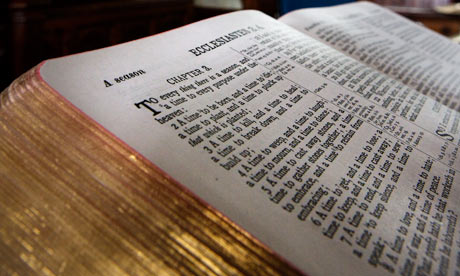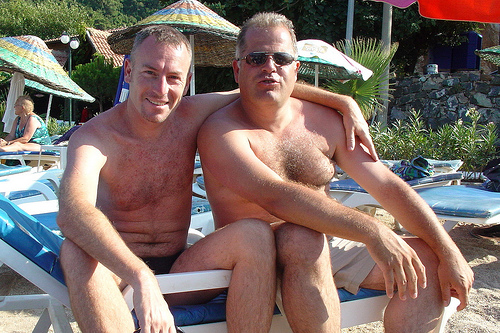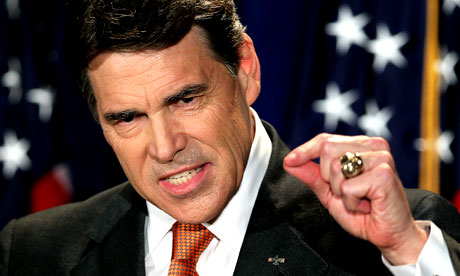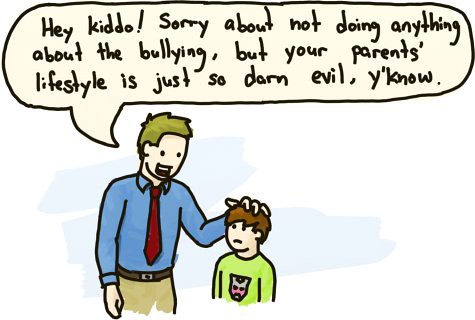IDAHO, the International Day Against Homophobia is the new kid on the block when it comes to gay people being out, comfortable and proud on a global level. Why do we need it? Because there is still much work to be done. Homophobia is still alive and kicking.
There is much similarity with the women who participate in the Reclaim the Night' marches. Mostly, we can all go out safely at night, but occasionally, people do run into trouble and can be threatened or assaulted. So these gallant and thoughtful folk march to say that our streets need to be safe places so that our society can flourish. You cannot have a flourishing society when there are threats of violence on the streets. Women need to feel safe on the streets. So do men. So do children. Safe streets are a signal that a society is healthy and flourishing. So they march. It is high symbolism. It draws attention to the issues. It is an acknowledgment that there is still work to be done.
So what about homophobia? Is it still out there? Well, just ask any LGBT person about the timeframe
when they last encountered some level of homophobia. Most will be able to give you an
answer somewhere within the period of the preceding twelve months. The last time I encountered it
was just one week ago on May 11 in the Comments section after I published a piece in The Punch
about sexuality and Christianity. Some of it was quite vicious. Homophobia is still alive and
kicking. It is a part of our societies. So a day like IDAHO Day is still needed. It raises consciousness
and helps to bring some focus to the world that we still have a long way to go on this issue.
The Origin of Homophobia
Where does homophobia come from? The answer to that question at least is easy. It comes from
patriarchy - the system of inequality that privileges men and masculinity over women and femininity
(from the Greek, πατριάρχης [patriarkhēs] - rule of the father). There are many ways to be a man.
But patriarchy insists that there is only one way to be a man, and this is a very specific type of
hierarchical masculinity. Patriarchy also insists that this form of masculinity is natural or normal.
Patriarchy says: this is just how males are. When ruling figures adopt this model and enforce it with
coercion, the result is a top-down effect whereby a competitive, hostile, jealous, dog-eat-dog, I've
gotta be first, emotionless, self-centred, unempathic form of masculinity becomes normalised. This
tribalistic form of masculinity is what gender sociologist R. W. Connell calls
hegemonic masculinity.
And hegemonic masculinity has its less obvious forms in everyday masculinity. In the West, men are
supposed to be strong, controlled, focused, rational and independent. Women, of course are
therefore represented as the opposite: weak, uncontrolled, unfocused, irrational and dependent.
This classic gender model is not only normalised, but actually celebrated and accorded a centrality in
the way we structure society. Still in Twenty-first century Australia, men run the show. Where
women do succeed, they either have to fight like crazy to get to the top, or sadly, act like men so
they will be respected.
 Patriarchy affects straight men in coercing them to conform.
Patriarchy affects women in keeping them competitive with each other for the favours of the males
Patriarchy affects straight men in coercing them to conform.
Patriarchy affects women in keeping them competitive with each other for the favours of the males
(if you don't believe me, watch how women treat each other in any open plan office with a few
women in it).
Patriarchy affects all gay people in the most harmful way as I shall describe below.
So patriarchy pretty much effects everyone and steers the gender order and thus the options of
people within a society.
Patriarchy, Homophobia and Gay Men
Patriarchy and homophobia go hand-in-hand for one very definite and observable reason. Patriarchy
has as its central tenet that women are inferior to men. Any man displaying any softness,
emotionality, any sense of being in touch with a more feminine side to his nature will be
instantaneously degraded in the patriarchal imagination. He will then be punished. For patriarchy,
there’s only one way to be a man and only one way to be a woman. Thus, with patriarchy's ability to
order society in its own image, gay men and women don't stand a chance. Why?
Because the one thing you cannot be in a patriarchy if you are a man is 'not a man.' 'Not a real man' is the standard by which gay men are judged by a patriarchal society. Gay men are seen as not real men. No man should sound like a woman. No man should look feminine. No man should be soft. No man should be in touch with his emotions. No man should display passion, enthusiasm or wonder in the way that a woman is supposed to. No man should be bookish or into creative arts. It is unmanly. We teach little boys that they shouldn't cry because 'big boys don't cry.' We teach little boys from a very early age that certain characteristics or emotional displays are unacceptable. We give them names like sissy or girly. It is unbecoming for a man, even a little boy type man, to display such behaviour.
Yet such sentiment has been around for a very long time. In Shakespeare's Hamlet, the fratricidal Claudius speaks of Hamlet's "unmanly grief" when Hamlet is grieving the unexpected death of his father. Men don't show emotion. Men don't talk about the deep things that trouble them. That would make them appear like women, who are very good at doing just that. So, gay men are prime targets for hegemonic masculinity or even everyday patriarchal masculinity. We are a threat to their sense of
being real men. This is why they find us disturbing and don't know what to do with us, so they often
lash out, either in discrimination, hurtful humour, emotional abuse or violence. They retain their
most hate-filled aggressive speech for us: faggot, fag.
But they have got us right to one extent although they miss the point entirely. Gay men usually are
more in touch with their more feminine side than are straight men. It doesn't mean we are women.
It just means that we acknowledge a part of us that is quite antithetical to the patriarchal
masculinity stereotype. We are not afraid to show that we care, that we sing, that we dance, that we are in our bodies, that we care about our appearance, that we are engaged with our emotional life, that we can be soft and tender, that we hug and kiss other men hello and goodbye, that we like to be creative, that we love our music. Even gay men who work as plumbers or as other tradesmen, play rough contact sport, are members of the military or in elite sports, can identify with this softer side of them that is a little more feminine.
And the wonderful thing about this incredible acknowledgment in the face of almost overwhelming societal sanction against it is that we are comfortable in this because we know there is an authenticity in it. We get to be ourselves. It has usually taken us quite a journey to come out of the closet and to cease living the life-lie, so we are reluctant to live inauthentically ever again. We know that our sexual orientation does not make us less of a man; maybe it even makes us more of a man because we do live our lives authentically and fully, unlike many straight men who must conform to the masculinity stereotype to one degree or another even when they do not want to. Straight men are not supposed to be in touch with this side of their nature. Some are of course, but they pay a price. And that price comes from a basic elemental homophobia. Men are men and that's the way it's supposed to be. Straight men who cross-dress clandestinely certainly do subvert this patriarchal system by bending gender conformity at least in the privacy of their own homes. Uncloseted gay men do it openly and unashamedly. And we pay a price too.
Patriarchy, Homophobia and Lesbians

Lesbian discourse has for years talked about the invisibility of lesbianism, both in society and in the gay world. You can see two women walking down the street hand in hand and we don’t too much bother. Society can cope with this, maybe even accept this. But two guys walking down the street hand in hand is another matter. You rarely see it outside Oxford Street, and even there now, not very often. In Australia 2012, two men openly displaying affection is still a big deal. Similarly, female cross-dressing is not considered as scandalous as men wearing women’s clothes. And yet, in some ways, lesbian women cop a double dose of the worst of patriarchy: already subjugated and devalued because of being women, they are then denigrated and often abused for being the wrong kind of women. Lesbians are considered a threat to the patriarchal system because they insist that they can live lives of integrity without marrying a man. The homophobia inflicted upon lesbians ranges from relatively mild workplace discrimination to the extremes of sexual violence.
Patriarchy and the Collective Unconscious
Homophobia is certainly out there. It is insidious and nasty. It is deeply misogynistic. It rejects the
feminine. And it particularly rejects the feminine in men. In Carl Jung's
Analytical Psychology, he
posited that humanity has an unconscious collective mind that transcends personal consciousness.
Because it is unconscious, it is out of awareness. Thus, for the collective unconscious to be expressed
in the male, it is expressed as
anima, a softer more feminine self, which has to be repressed in the
conscious life. And likewise, for the collective unconscious to be expressed in the female, it must be
expressed through a masculine inner personality,
animus. We know these are present in all of us
because in our most secret moments, our most alone times, we let animus and anima out of their
cages for a while and enjoy something profoundly nourishing, something that the conscious mind of
patriarchal society cannot accept or cope with. Homophobia springs from that rejection of engaging
our opposite sex gender. It is an uncontrolled lashing out at something it does not understand.
Internalised Homophobia
As gay people, we grow up in this same society that breeds homophobes. As children, we accept the
values and mores of society and normalise them, including traditional church teachings about sex
and sexuality if we are part of a church. This normalisation process is very harmful to us if we gay. It
effectively internalises homophobia within our very lives so that we have to come out not just once,
but for the rest of our lives. The shaming aspect of homophobia shouts at us that we should be
ashamed of who we are and how we are. It bellows at us that we should go back into the closet and
hide ourselves away again for we are unacceptable. You are not a real man. You are not a real
woman. It is powerful and something that psychologists call internalised homophobia. It is where we
beat up on ourselves.
 |
| Merewether Ocean Baths photo by OzinOH |
None of us are immune. True story. Personal story. In summer, just a few months ago, my partner Chris and I went for a swim in the glorious Merewether Ocean Baths. There were lots of families, lots of kids, lots of teenagers and young straight couples. While swimming around, Chris came up to me and from a body's distance from me, stretched out his legs and grasped my waist with his feet. Instantly and without thinking I brushed them off because of the fear of the humiliation of looking gay in public. Chris was hurt and began to swim off. I was immediately taken by the gravity of what had just occurred and my part in it. I had repudiated my own partner's attempt at simple affection because of my own internalised homophobia. Interestingly, where Chris and I are usually quite open and affectionate with each other in public and I thought that I was beyond that kind of attack, I drew new insight that afternoon that really, none of us are immune. My brushing his feet away was like a reflex action - you know, tap the knee, the leg jumps out bypassing the brain. This is what happened in the pool that afternoon. An automatic internalised homophobia that tried to force me back into the pretending and lying of the closet. It happened so quickly that it took me by surprise as much as it did Chris. It bypassed my brain and I reacted rather than responded. I swam after him immediately and apologised and acknowledged what had happened and we swam to the pool ocean edge and peered out to sea for a while and talked it through, bodies touching each other as we leaned our arms on the edge and talked. We have to be so careful of homophobia, both as an agent of a patriarchal society and within ourselves.
The Ubiquity of Homophobia

Unfortunately, homophobia is to be found everywhere. It is rife in the schools. High school kids suffer an enormous burden with homophobic bullying, and at a time when they do not have the emotional maturity nor life experience to deal with it properly. Homophobia is in sport. There are very few out gay men in elite sport in Australia. When someone does come out, it is usually a big deal and makes headline news. Olympian Matthew Mitcham braved homophobia and came out before he won his gold medal in diving. Homophobia is in the police force, in medicine, in the law, in just about every career that you could name. It is certainly in politics. Occasionally it rears its ugly head and makes itself manifest in the parliaments of our country. Homophobia is everywhere. In some quarters, it is particularly strong and overt, while in others it is more subtle and invidious.
Final Thoughts

As I pen this post, four men in Iran are preparing to be executed for their homosexuality. Like the
two gay teenagers in this shocking picture, they will be hanged. Let me give you their names: Saadat Arefi, Vahid Akbari, Javid Akbari and Houshmand Akbari. I want to honour them because they are our brothers. They are being killed because they dared to be authentic. Homophobia, fuelled by patriarchal religion (and they are all patriarchal to varying degrees), is going to murder them. I hope there is a last minute reprieve but the sounds coming from Iran are not good.
On this IDAHO Day, let us remember that homophobia is just another form of prejudice, the filth of which we all need to reject as being unacceptable in a world that we want to be a better and freer place.
Pax et Amor - Stuart





















